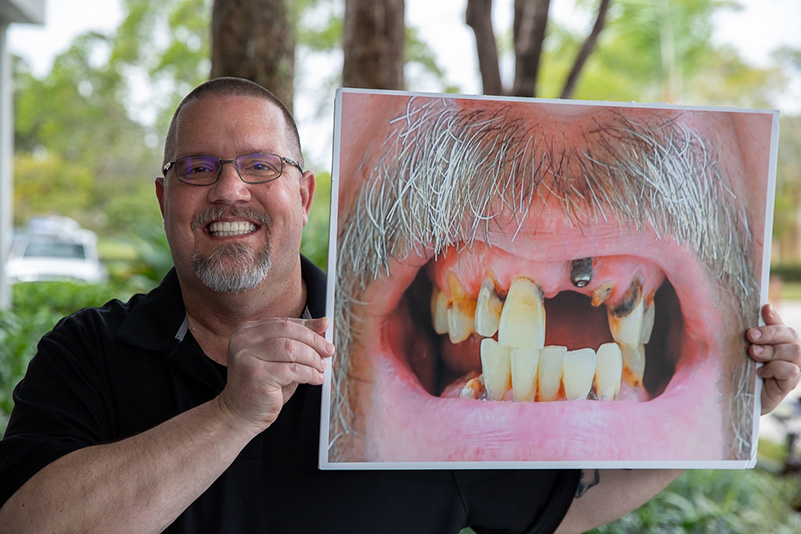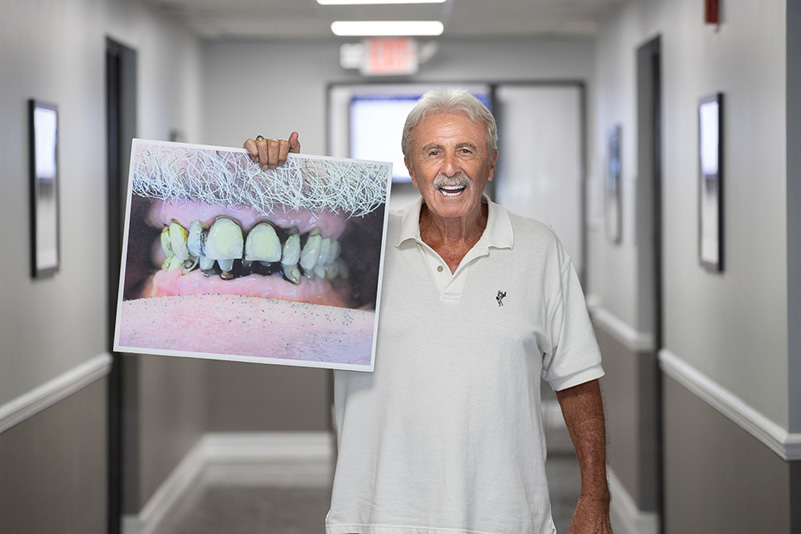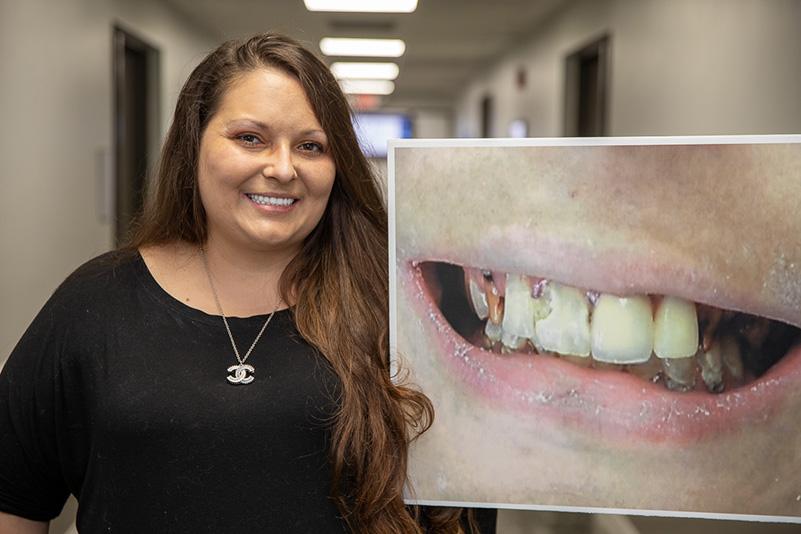General Dentistry | Cosmetic Dentistry - Greenacres, FL
Welcome To South Florida’s Premier Destination for Cutting-Edge Technology and Robotic Implant Dentistry
At the forefront of dental excellence in Greenacres, FL, and across Palm Beach County and Miami stands the Ferber Dental Group, your premier destination for unparalleled dental care. Embracing cutting-edge technology, and the Latest in Robotic Dentistry, we elevate dental treatment Ensuring the highest levels of success and patient satisfaction. However, it’s not just the technology that defines us; it’s our unremitting commitment to creating a comfortable, friendly environment, offering tailor-made care plans and specialized procedures that cater to you and your family’s unique needs.
While our expertise spans a wide spectrum, from routine cleanings and exams to advanced gum disease treatment, we proudly stand out as the foremost specialists in single and full mouth dental implants. Our meticulous approach has transformed countless smiles and lives, making us your trusted partner on your path to restored confidence and oral well-being. No matter the reason behind your visit, be prepared to leave our practice with a healthier smile and a newfound joy that will have you beaming once again.
Meet Our Team






Brian Ferber, DMD
A New Jersey native, Brian Ferber, attended Brandeis University and the University of Pennsylvania School of Dental Medicine. In Pennsylvania, he was awarded the National Board Achievement Award. He’s devoted to continuing his education, having received training in IV sedation at the Washington University School of Medicine in St. Louis and the St. Joseph’s Medical Center in Patterson, NJ. Faber is proud to be a certified member of the Clean Implant Foundation.
Brian Ferber, DMD
Brian Ferber, DMD
Sharon Ferber, DMD
Our resident endodontist, Dr. Ferber, graduated from Brandeis University and the University of Pennsylvania School of Dental Medicine. She received her master’s degree in medical science from the Harvard Medical School and a specialty certificate in endodontics from Harvard University School of Dental Medicine (where she is a former instructor). She is committed to providing high-quality care to every one of her patients.
Sharon Ferber, DMD
Sharon Ferber, DMD
Mindy Shafer, DDS
Mindy Shafer, DDS, takes pride in her commitment to patient comfort. She grew up in New York and attended the New York University College of Dentistry. Later, she completed a residency at St. Charles Hospital in Port Jefferson, NY. She has an interest in cosmetic dentistry.
Mindy Shafer, DDS
Mindy Shafer, DDS
Deepali Jethwa, DDS
A New York University College of Dentistry graduate, Dr. Jethwa completed her residency at Seton Hall University and the Jersey Medical Center. She’s specialized in cosmetic and reconstruction dentistry since practicing in 2001.
Deepali Jethwa, DDS
Deepali Jethwa, DDS
Fatemeh Gholami, DDS
Dr. Gholami is Ferber Dental Group’s leading periodontist. She received her Certificate in Periodontics and her master’s degree in craniofacial biology from Nova Southeastern University College of Dentistry. She’s currently a Diplomate of the American Board of Periodontology and a member of the American Academy of Periodontology, and she’s double board-certified in periodontology and dental implant surgery.
Fatemeh Gholami, DDS
Fatemeh Gholami, DDS
Beyond Words: How Our Dental Care is Reshaping Lives
View More StoriesComprehensive Services
for Exceptional Smiles

Dental Implants
You’ve probably had to change your lifestyle if you’re missing one or two teeth. In some cases, crowns and bridges are a potential solution, but single and multiple dental implants last far longer and look and feel more natural. Even better, they restore up to 99% of your original biting and chewing power so that you can eat an unlimited diet.

Full Mouth Dental Implants
With full mouth dental implants, we can replace an entire arch of missing teeth. As South Florida’s implant specialists, we have decades of combined experience in the All-on-X implant protocol. These high-end restorations will allow you to smile freely for a lifetime!

State-of-the-Art Dental Robotics Lab
Welcome to our cutting-edge dental practice, where innovation meets excellence and quality. We’ve transformed into South Florida’s most advanced facility, utilizing top-notch technology like Yomi robotic dentistry and Einstein 3D printers for precision. With InstaRisa facial scanning and in-house lab capabilities, we ensure personalized care and flawless outcomes for each patient’s dental implant journey













